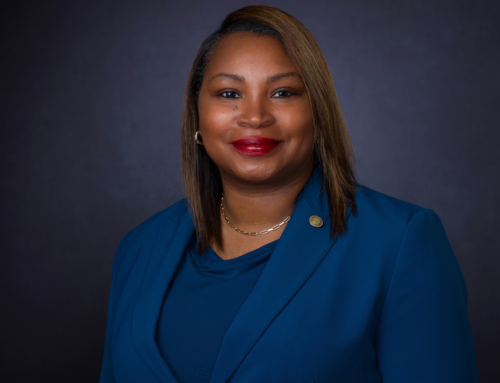Alcorn president Felecia M. Nave testifies on “Building Equity in Agriculture” before House Agriculture Committee
Alcorn State University President Felecia M. Nave, Ph.D., was invited by House Agriculture Committee Chair Stacey E. Plaskett to testify and answer questions in a virtual public hearing before the Subcommittee on Biotechnology, Horticulture, and Research Wednesday, Dec. 9, on “1890 Land Grant Institutions – 130 Years of Building Equity in Agriculture.”
President Nave was among three 1890 land-grant university presidents who were invited to testify before the Subcommittee. Dr. Nave was joined by Dr. Makola M. Abdullah, president of Virginia State University, and Dr. Paul A. Jones, president of Fort Valley State University.
The Second Morrill Act of 1890 created a system of 19 historically black colleges and universities (HBCU) dedicated to providing affordable and equitable educational opportunities through innovative scientific research, teaching, and community-minded extension programs.
“I am honored to have been asked by the Committee on Agriculture to speak on behalf of the extraordinary things we at Alcorn State and the other 1890 HBCUs are doing every day to improve the quality of life for people around the state and the country, as we continue to help serve the nation’s agricultural needs of the future,” said Nave.
“Agriculture is critical to Mississippi’s and America’s food and economic security. Mississippi agriculture, representing $7.45 billion, is the top industry in the state, directly and indirectly employing approximately 29 percent of the state’s workforce. The strength of Mississippi’s agriculture is due, in large part, to the strength of the state’s two land grant universities.”
“Despite the current challenges presented by the COVID-19 virus, our faculty, staff, and extension agents have continued to find innovative ways to support students, the community, and farmers who lack the necessary resources to deal with a pandemic. COVID-19 has further exposed the funding inequities experienced by HBCUs and communities of color. Yet, with our limited resources, we continue to do more with less to fill the widening gaps in the areas of health disparities, food insecurities, and workforce development.”
“The future of American agriculture, farming, and ranching rest in the future of its 1890 land grants. One must reflect on what we have done to see a vision for what tomorrow will look like. Always on the cutting edge of innovation and progress in agriculture, HBCU land-grants have been at the forefront,” added Nave. “Equity and impact are central to the conversation around the future of 1890 land grant institutions, and we must address inequities in ways which more strongly support the intended outcomes of our programs.”
Founded in 1871, Alcorn is unique among the 1890 institutions because it is the only HBCU founded with a land-grant purpose after the Morrill Act of 1862, making it America’s oldest public historically black land-grant institution. Next May, Alcorn State University will celebrate its 150th anniversary.
A recording of the hearing is available on the House Agriculture Committee website at https://agriculture.house.gov/videos/.




